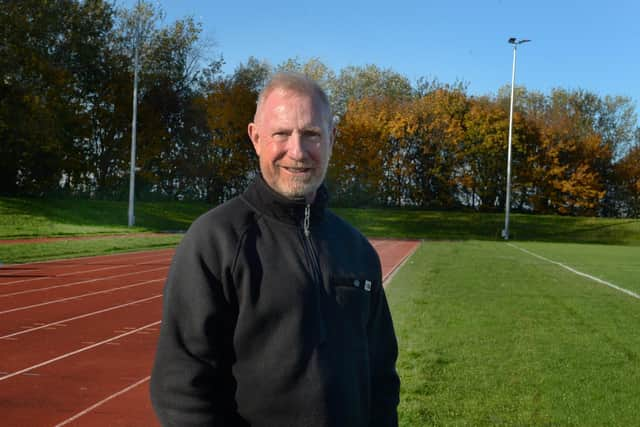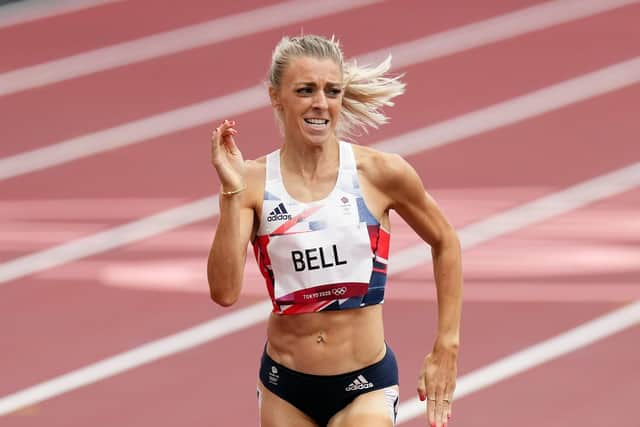Athletics in Yorkshire: Facilities, investment and more competitions needed to strengthen cohort, says Peter Elliott
Nonetheless, UK Athletics’ most recent funding programme – which indicates who will receive official financial backing to compete at the Paris 2024 Olympics – included no Yorkshire-born athletes in or beyond its ‘podium potential’ category.
One notable absentee from this funding round is Leeds-born Alex Bell, who finished seventh in the 800m final at Tokyo 2020.
Advertisement
Hide AdAdvertisement
Hide AdFor those reading from afar, this announcement appears to imply a potential cause for crisis in relation to athletics in Yorkshire.


But former Olympic silver medallist Peter Elliott believes such concerns should be tempered down, despite the dearth of White Rose representation in the current Olympic line-up.
Instead, the retired middle-distance runner has suggested that the rise of such athletes is merely a matter of time – especially when considering the high threshold set by UK Athletics to receive Olympic funding.
Speaking to The Yorkshire Post, the 61-year-old said: “There is a lot of talent in Yorkshire at the moment and I’ve been keeping a close eye on those coming through.
Advertisement
Hide AdAdvertisement
Hide Ad“We do have a depth. They are quite hard standards, but if you can’t meet the standards, you’ll never make an Olympic or Paralympic title.


“So, it’s just a matter of them persevering doing what they’re doing.
“If they transfer that to competitions, hopefully the hard work will pay off.”
The South Yorkshire-based athlete – who represented Britain alongside Steve Cram and Sebastian Coe during the 1980s – has recently been elected as president of Rotherham Harriers Athletics Club.
Advertisement
Hide AdAdvertisement
Hide AdBefore returning to the Harriers, Elliott worked as president of South Yorkshire Schools Athletics Association and as director of operations at the English Institute of Sport in Sheffield. These experiences have subsequently provided him with a substantial insight into the state of athletics in Yorkshire – from grassroots level onwards.
“Those times are getting harder and harder,” he said.
“We do have a cohort there of young athletes and I know UK Athletics is having some financial difficulties at the moment.
“For those who have missed out, it’s difficult.”
The organisation is presently in crisis mode, with several high-ranking coaches leaving in the past month.
Earlier in 2023, the governing body reported losses of £1.8m and was forced to make ten staff redundant.
Advertisement
Hide AdAdvertisement
Hide AdElliott also suggested that further investment is required in the sport, which is presently characterised by its largely amateur structure and its ailing facilities.
Such views are epitomised well by his current club’s track at council-run Herringthorpe Stadium, which in the president’s own words is “tired”.
He said: “It’s one of the few sports where we still heavily rely on volunteers – even right up to international athletes going to major games.
“I think it all comes down to investment and Sport England (who help fund community sport) do a great job with grassroots.
Advertisement
Hide AdAdvertisement
Hide Ad“Sometimes it’s the facilities that are a problem. Go down to Herringthorpe Stadium and the facilities are tired.
“I think there’s a need to keep on top of facilities and not let them become dilapidated. It’s those little things that matter.
“That for me is a key factor.”
Sport England has since announced that it will invest £250m in around 80-100 deprived communities to “shake up” the nation’s sporting infrastructure.
However, it is unclear how much this funding will benefit grassroots athletics.
Advertisement
Hide AdAdvertisement
Hide AdZoe Dickinson, who volunteers at Steel City Striders as their training, coaching and venues representative, echoes Elliott’s concerns about facilities.
The Striders are the largest running club in Sheffield, and proudly claim to be the friendliest in Yorkshire.
From her own experiences in lower-level athletics, it is apparent that the sport’s status is currently fragile.
Dickinson said: “I think it’s a challenging environment.
“We had a lot of fixtures cancelled this year, and I think that’s a real shame.”
Advertisement
Hide AdAdvertisement
Hide AdSince Sheffield lost Don Valley Stadium ten years ago, no clear replacement has been provided. She said: “In Sheffield, we’re losing tracks and we’re losing the facilities for people to actually do athletics specifically.
“Road running’s fine, but athletics events are virtually non-existent.
“We need some investment in the clubs that can help to grow those events. A lot of sports talk about being inclusive when they’re not, but running really is.”